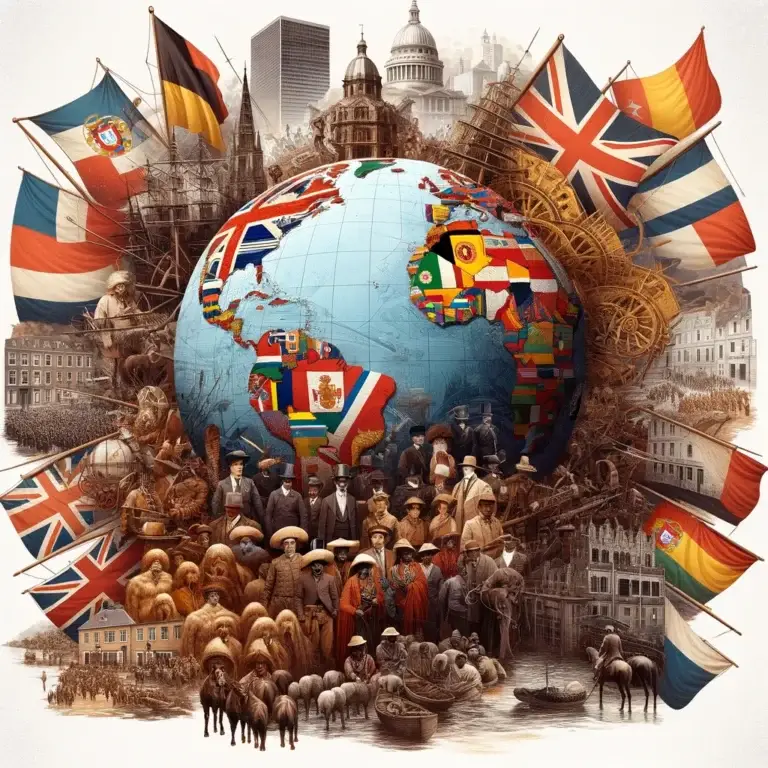Colonialism

Table of Contents
What is Colonialism?
Colonialism refers to establishing, maintaining, and exploiting colonies in distant territories by a dominant state or society for economic, political, or cultural gain.
Historically, European colonial powers such as Britain, France, Spain, Portugal, and others expanded their empires by conquering and subjugating indigenous peoples across Africa, Asia, the Americas, and Oceania. Colonialism often involved the imposition of foreign rule, exploitation of natural resources, forced labor, cultural assimilation, and the suppression of indigenous cultures and rights.
While proponents argued that colonialism brought civilization and economic development to colonized regions, critics condemn it as a system of oppression, exploitation, and cultural imperialism that caused lasting harm to indigenous peoples and societies.
Impact of Colonialism
Colonialism refers to establishing control over foreign territories, often involving colonists’ settlement and exploiting resources, labor, and indigenous populations for the benefit of the colonizing power.
Modern colonialism began in the 15th century with European exploration and expansion, as countries like Spain, Portugal, England, France, and the Netherlands established overseas empires in Africa, the Americas, Asia, and the Pacific.
European colonial powers justified their conquests through ideologies such as the “civilizing mission,” claiming to bring progress, Christianity, and civilization to “uncivilized” or “backward” peoples.
Colonialism led to the displacement and marginalization of indigenous peoples, the imposition of foreign laws and customs, and the suppression of local cultures, languages, and traditions.
Economic exploitation was a central feature of colonialism, with colonies serving as sources of raw materials, labor, and markets for manufactured goods produced in the colonizing countries.
The Scramble for Africa in the late 19th century saw European powers partitioning the continent and establishing colonies through treaties, conquests, and diplomatic agreements, leading to the exploitation and oppression of African peoples.
Resistance to colonial rule took various forms, including armed uprisings, protests, and movements for independence and self-determination. Examples include the Indian Independence Movement led by Mahatma Gandhi and the Mau Mau Rebellion in Kenya.
The impact of colonialism on colonized societies was profound and long-lasting, shaping their economies, politics, cultures, and social structures for generations.
Decolonization, the process of dismantling colonial empires and granting independence to colonies, gained momentum after World War II, with many African and Asian countries achieving independence in the mid-20th century.
Despite the formal end of colonial rule, the legacies of colonialism persist in the form of economic disparities, social inequalities, ethnic conflicts, and political instability in former colonies, highlighting the enduring impacts of colonialism on the modern world.
Related Links
Age of Exploration
Berlin Conference
Decolonization
Globalization